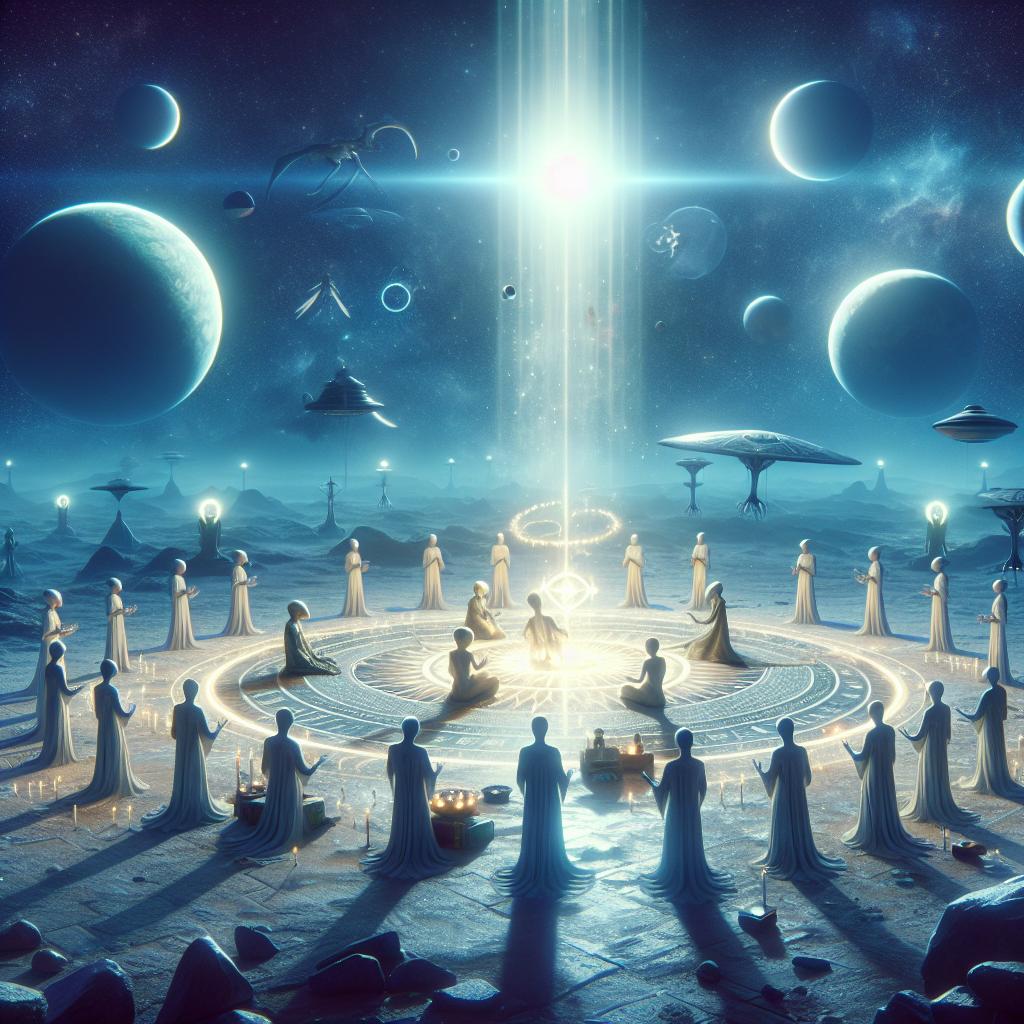
Unlocking Divine Mysteries: Why Aliens Might Hold Advanced Spiritual Insights
Published: 05 September 2024
Evolutionary Theologian Thinks Aliens Would Have More Advanced Religion - Mark Worthing
Introduction
In this article, we will explore the views of Mark Worthing, a theologian who supports theistic evolution and its implications on Christianity. Worthing is a member of ISCAST, an organization that defends the idea of evolution and even claims that Jesus made mistakes in his teaching. These beliefs directly conflict with the philosophy of Tabor College, where Worthing teaches. Despite this conflict, the college administration has not addressed these concerns.
The Possibility of Life on Other Planets
Worthing appeared on an ABC program called "Café Scientific—Is there room for God in space?" where he discussed the possibility of life on other planets and its implications for religion. He suggested that if intelligent life exists elsewhere in the universe, it would not necessarily challenge our understanding of who we are before God. He argued that the Christian Scriptures and major teachings of other world faiths have never explicitly ruled out the existence of life on other planets.
The Uniqueness of Earth and Humanity
Worthing acknowledged that historically, many Christian theologians believed in the existence of life on other planets within our solar system. However, as scientific advancements revealed that other planets are less hospitable than imagined, this idea dissipated. Worthing also suggested that if life were discovered on Mars, it would not change our view of ourselves before God. He expressed the belief that God could have more going on than just humanity and Earth, and this expanded perspective should not threaten our faith.
The Impact on Religion
Worthing acknowledged that finding intelligent life forms in outer space without any religious perspective could cause people to reflect on their own values and beliefs. He suggested that if we were to encounter such beings, it might be an opportunity to share our own religious faith with them. However, he also stated that encountering intelligent life without a religious commitment might be more comfortable for religious people, as it would avoid potential conflicts.
Theological Implications
Worthing's views raise several theological questions. The uniqueness of the incarnation of Christ becomes a significant issue when considering the possibility of life on other planets. Worthing explored various models that theologians have proposed to address this dilemma, including the idea that the fall and redemption were unique to Earth or that multiple incarnations of Christ could occur on different planets. However, these models present challenges and undermine the uniqueness of Christ's sacrifice.
The Importance of Clarity
The discussion about the possibility of life on other planets forces us to think more deeply about our own Christian beliefs. It is crucial to maintain clarity and consistency in our understanding of Scripture and its teachings. The Bible clearly states that Jesus is the way, the truth, and the life, and that salvation comes through faith in Him alone. We must prioritize the authority and sufficiency of Scripture in our theological discussions.
Why This Matters
The conversation surrounding the possibility of life on other planets raises important theological questions. It challenges our understanding of God's plan for humanity and the uniqueness of Christ's atonement. As Christians, we must carefully consider these implications and ensure that our beliefs align with the teachings of Scripture.
Think About It
- How does the possibility of life on other planets impact your understanding of God's creation?
- Do you believe that encountering intelligent life from another planet would challenge your faith? Why or why not?
- How can we maintain a clear understanding of Scripture while engaging with scientific advancements and theories?
